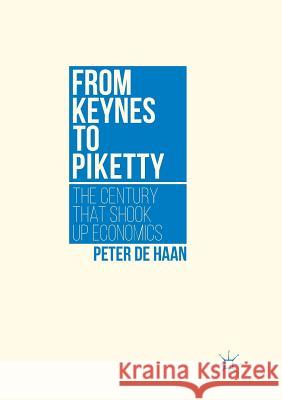From Keynes to Piketty: The Century That Shook Up Economics » książka
topmenu
From Keynes to Piketty: The Century That Shook Up Economics
ISBN-13: 9781349956050 / Angielski / Miękka / 2018 / 530 str.
Kategorie:
Kategorie BISAC:
Wydawca:
Palgrave MacMillan
Język:
Angielski
ISBN-13:
9781349956050
Rok wydania:
2018
Wydanie:
Softcover Repri
Ilość stron:
530
Waga:
0.65 kg
Wymiary:
21.01 x 14.81 x 2.84
Oprawa:
Miękka
Wolumenów:
01
Dodatkowe informacje:
Wydanie ilustrowane











